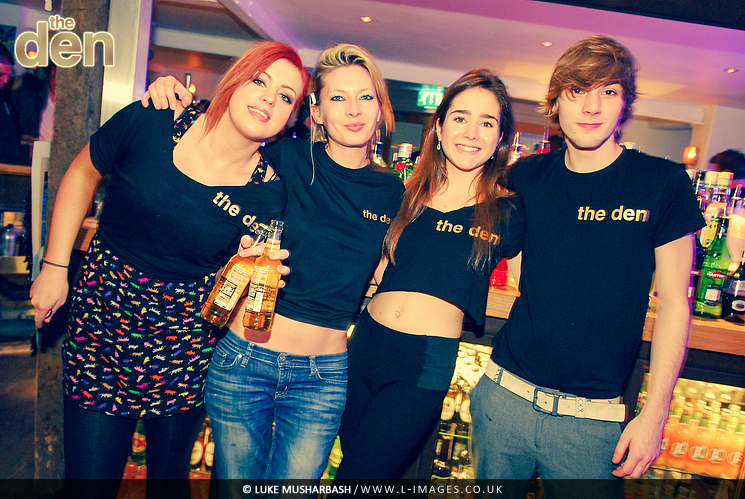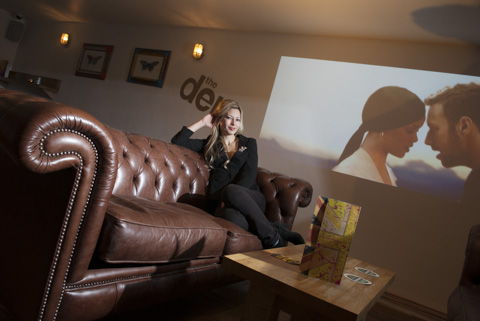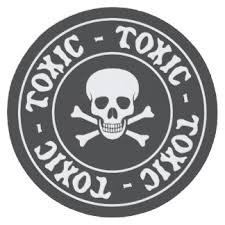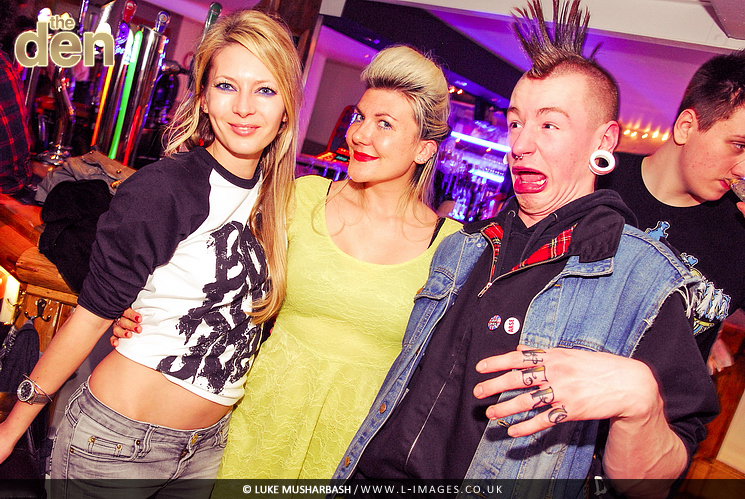From Autumn 2012 until December 2013 I co-owned a bar and sensibly chose that time to get sober. (For context, you might want to check out Part One of this loony true story before reading on.)
I didn’t get sober straight away. Of course I didn’t. I’m not insane! I did what any reasonable binge-drinker would do; I made the most of having the keys to my own bar for a while and drank myself to the brink of death.
I had several last hurrahs – knowing full well they weren’t to be my last. I wasn’t drinking all the time, but when I did drink, I really drank and things usually got pretty wild, pretty quickly. I knew that I needed to completely jack it in at some point, but I just kept postponing the inevitable. I threw parties that I’ll never forget. I had locks-ins that other people will never forget. They were hedonistic, unbridled affairs that sometimes carried on until my staff arrived the next morning to set up for their day shift. I partied harder than ever before. I partied harder than anyone I’d ever met actually. I made sure of it because I was on a mission – I was trying to party it all out of my system.
But it doesn’t work like that, does it? If you want things to change, you have to actually change them. You don’t just turn the dial up to 11 and hope for the best. At some point you have to make a considered decision and then throw everything you have into upholding that decision. And after one too many wild nights and godawful subsequent hangovers, that’s exactly what I did.

Me, with some of my gorgeous bartenders.
I couldn’t carry on the way I was and I didn’t want to either. There were still some good times amidst all the excess but the crippling consequences of living that lifestyle far outweighed the fun. Things had to change. I wanted things to change. I had known for some time that I’d developed an unhealthy dependency on alcohol. I didn’t feel like I could fully relax or enjoy myself without it and if I felt anxious or down or bored I’d drink for those reasons too. I’d often go two or three weeks without drinking but whenever I started again, back down the rabbit hole I’d go. I knew I couldn’t change my drinking habits whilst I was still drinking. I had to stop completely for some time, for several years, and possibly forever if that’s what it took, to properly reclaim my health and happiness.
At the time, when people found out that I’d left radio presenting to run a bar, and in addition to that – that I was planning to stop drinking, they looked at me in disbelief. They told me that I was mad. They questioned everything about it. They were dubious at best and deeply concerned at worst. If I was serious about giving up drinking then surely being around booze all the time was going to make that impossible?
They had good reason to be doubtful, but it wasn’t impossible. In fact, it turned out to be a blessing in disguise. Settle in chums and allow me to explain why:
1. I was my own boss
I loved my radio station bosses at the job I had before, but nothing beats being your own boss. Suddenly, I had real autonomy and at that point in my life, that’s exactly what I needed. After years of 4:30am starts, broadcasting live on air to 100,000 people 6 days a week, constantly presenting and performing, I desperately needed some breathing space. I needed time, understanding and compassion in order to address my drinking problem and the underlying issues and trauma that were behind it. Being my own boss, managing a new business 50/50 with someone I was able to be truthful with from the start, was the right foundation for the changes I needed to make.

Being the boss wasn’t always about lounging around on chesterfields watching music TV. But sometimes it was.
2. I was always around booze
As you’d expect, owning a bar meant being around alcohol all the time, but this wasn’t as problematic as you might think. When I was getting to grips with being long-term sober I actually took comfort in being around booze. I liked chatting with people across the bar as they were drinking and I was sober and working. Having the keys to my own bar in my back pocket gave me a reassuring sense of calm. I think this was because of the inherent notion of perceived scarcity. Until then, whenever I drank, in the back of my mind I was always concerned about running out. I was like this with cigarettes when I smoked too. People with food issues also say the same thing – when something is compulsive, it ceases to be wholly enjoyable. So owning a bar meant that I could relax because I was never in fear of short supply, whether I drank it or not. Alcohol was permanently available to me. Copious amounts of it. More than I could ever consume. 24 hours a day, eight days a week. There was no Closing Time panic for me anymore. There was no legging it to the Off License just before it shut. I now had a permanent over-abundance. A colossal oversupply. When you have so much at your disposal, and you’ve indulged in that opportunity with wanton abandon, as I did in the early days whenever I went on benders in my bar, you quickly realise that it only takes a fraction of what’s there to render you senseless. There was no cause for concern. I could have it if I wanted it, I was just choosing not to have it. It reset something deep-rooted in me. After a while, no amount of it was of any interest. Being around it wasn’t tempting because I had stopped wanting it. It had lost its power over me. Former problem drinker often say they feel uncomfortable around drink. Need to hide it. Out of sight, out of mind. I overcame that problem completely.
3. I saw it for what it really is
When you run a bar you have a lot of meetings with brewery and brand reps. You decide on the price points and mark ups. You develop an understanding of how alcohol is advertised, marketed and sold. You know how it’s produced and packaged and branded. You start to see it for exactly what it is – a substance that generates a colossal amount of money. A socially accepted psychoactive drug that turns otherwise gorgeous people into gibbering lunatics. An addictive, widespread, powerful intoxicant that is incredibly effective at getting people hooked. A drug that, if you’re a teetotaller, you’ll have to justify not taking. Which is so backwards bonkers it still baffles me.
Most drinkers are reliant on alcohol to some degree. Most drinkers regularly consume too much. Most people when drunk behave in ways they wouldn’t dream of whilst sober. Most drinkers, at some point, worry about how much they’re drinking. Most drinkers would prefer to drink less. Most drinkers know they should drink less, but can’t seem to moderate all that reliably.
It’s a substance that needs to be treated with the utmost caution. When consumed to excess (and ‘excessive’ alcohol consumption is considerably less than most people think), it wreaks havoc on the human body. It absolutely needs be consumed in proper moderation or not at all. If you’re going to include it in your life then it should be an occasional use kind of thing, like chocolate cake or fast food should be – far less than that, even. It needs to be something that you can take or leave. You know when you can’t leave it. You know when you’re too dependent on it. Your life should not revolve around it. If it does, I’d say that’s a problem. It doesn’t bode well to become in any way reliant on it in order to function. Alcohol abuse kills. It destroys lives. It’s not to be taken lightly and it’s not to be taken with every meal either. During the time I ran that bar. I ordered it, stocked it and served it. I lived and breathed it. I just stopped drinking it. I learnt how to live happily without it and I’ll forever be thankful for that.

4. I saw how it affected other people
Day after day, night after night, I saw through clear and sober eyes how alcohol really affects people. I watched hundreds of people walking into my bar tightly wound and twitchy and then dissolve into sloppy stupors right in front of me. It doesn’t take many drinks for people to be relieved of their inhibitions – isn’t that why so many people drink in the first place? Not to gain something but to lose whatever it is that burdens them. It’s a shortcut to pretend confidence and unearned intimacy. I saw the shyest of sober people dancing on tables and stripping off after a few shots. And I watched people drape themselves over complete strangers as though they were long lost lovers. It’s a fascinating thing to see when you’re sober, until it becomes mind-numbingly boring, because drunk people are only interesting and attractive to other drunk people. Which is why we don’t tend to like drinking in the company of sober people; we know they will see what we’ll soon be incapable of seeing. It’s unnerving. It’s why drinkers tend to put the thumbscrews on non-drinkers. “Go on! Just have one! Don’t be boring!” Teetotallers make drinkers feel uncomfortable, and the intensity of their discomfort is proportionate to the degree of their own drink problem.
It was during this time that I realised most people who drank were addicted to some degree. In fact once people were drunk enough, a lot of them openly spoke about their drink problems. I lost count of the amount of times I saw people come in for ‘just the one’ only to stagger out, reluctantly, at closing time. Alcohol misuse is rife. It’s all around us, you only have to be sober enough to see it.

Me and one of my besties – we were sober. And another dude – who’d had a few. Zero difference in demeanor, see?
5. I managed severe stress whilst sober
Managing your own business is hard. Getting sober is hard. And I did both at the same time. It was super stressful, but I’m betting that your life hasn’t been a cakewalk either? We all have to manage stress in one form or another. I had to learn to manage my stress without turning to drink to relieve it, even though it was constantly within reach. And you know what happened? I realised, without a shadow of a doubt, that drinking doesn’t relieve stress at all. It only makes you think it relieves stress because you’re drunk – it’s a disingenuous little bugger. In actual fact, alcohol actively contributes to stress in the long run. Any stress I dealt with soberly was sorted out far more efficiently because I didn’t keep stopping to waste time drowning my sorrows and recovering from hangovers. Learning to deal with hard stuff head on, without a drink in hand, was mighty difficult at first, but after a fair bit of experience and practice, it became second nature and first choice. It always will be now, whether I drink alcohol or not.
6. I learnt to party sober
Again, this one takes a bit of getting used to but it’s absolutely possible, preferable even, to party sober. You learn little tricks to deal with pushy people who try to pressure you into drinking. You just stop caring about it. You realise it’s 100% their problem not yours. You relax into yourself and you build genuine confidence and charisma. You become proud to go against the socially accepted drink centric norms. You realise that once people are a couple of drinks down, they stop noticing whether you’re drinking or not anyway. You’re free to have real fun. You are fully present to enjoy what’s going on around you. You’re not obsessing about alcohol; whether you’ve had enough, whether you’ve had too much, whether you’re going to run out, whether you’re going to be hungover the next day. Whether you’ve offended anybody, whether you’ve tucked your dress into your knickers. (Twice, guys. TWICE!) You save money, you keep your dignity, you look hotter, you feel healthier and you don’t lose huge chunks of your life to dangerous blackouts and brutal hangovers. You don’t cringe at what you did or who you did. You don’t behave in any way you don’t want to. You get to live authentically, passionately, purposefully. You gain strength and stamina. You get to live the happiest life of your wildest dreams, if only you’re brave enough to put the drink down and pull your socks up.
This is just my personal experience and obviously not the most conventional way to address addictive drinking, but it worked for me. And it just goes to show that if you’re determined enough to do something, you won’t let a little thing like circumstances get in your way! You are far stronger than any of your excuses. I hope you remember that the next time you doubt yourself.
